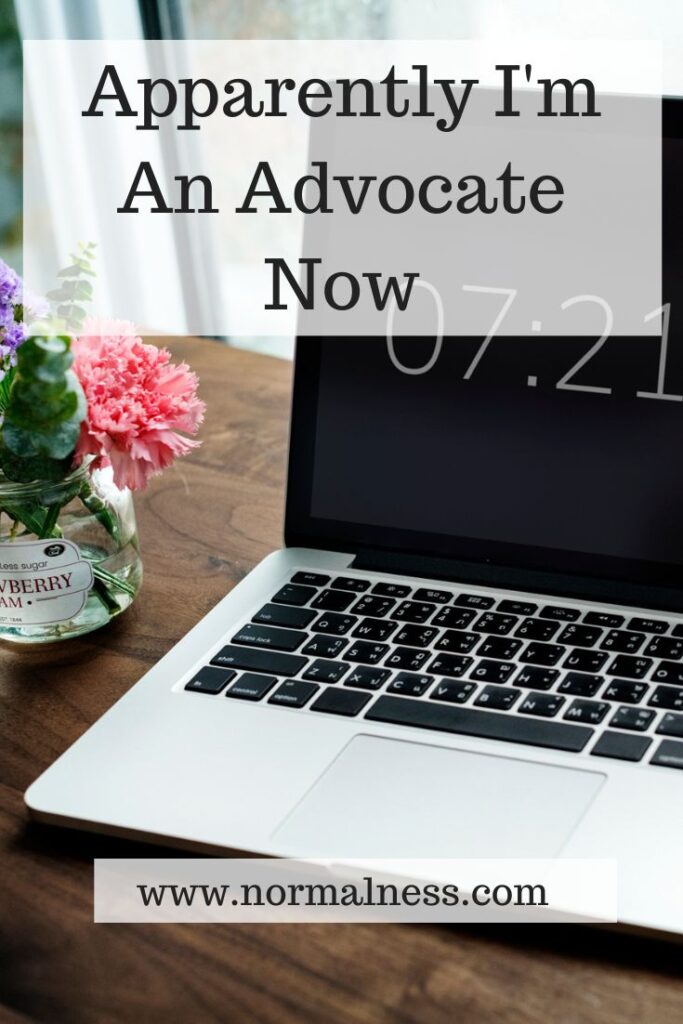Apparently I’m An Advocate Now
At least for myself…
As some of you may know, the project I was working on in my day job has had some issues, and the short story is that myself (and many others) had their contract cancelled. I was expecting another 6-12 months of working there, so it was a big shock. I took a day to deal with the shock and then dug into job hunting.
And holy freaking big balls (sorry, we’ve been watching a lot of Wipeout on Binge) … the discrimination I have been facing has been next level. I was expecting some things to be a shitfight but it has been way worse than I was expecting. And it turns out I’m not very good at keeping quiet on this stuff anymore. I’m not a big fan of LinkedIn but I’ve opened my mouth there and it appears I’m not stopping.
I didn’t know (still don’t) if there are negative consequences for these types of posts. But I figured anyone who will hire a staff member with a disability isn’t going to be “offended” by me talking about some harsh realities.
Here are some of the posts I’ve shared on LinkedIn:
Post One:
On Monday this week, I got the unwelcome news that the project I have been working on for the past year is being paused, which means myself (and many colleagues), are now looking for work.
I spent a bunch of time this morning job hunting.
And… I don’t know how to allocate my spoons*.
There are tons of jobs I’d be a competitive candidate for. I can’t write applications for all of them.
I need to write applications for the ones that appear flexible and inclusive.
The problem is, everyone has anti discrimination policies, but they don’t apply them in reality. As a disabled job seeker, this makes it practically impossible to identify which jobs to apply for/where to spend my energy.
When I worked at the uni, one of my most common pieces of feedback on staff surveys was that they have a lot of amazing policies, but implementing or accessing the policies is up to the whim of the manager, which makes the policies basically useless.
And that’s true in most workplaces, it is certainly not unique to that university or even the university sector broadly.
It is impossible to tell from the outside who actually welcomes a staff member with accessibility requirements.
This means that it puts the burden of doing work (in this context, assessing which jobs are genuinely inclusive) on the disabled person, who is the person who least needs extra work.
*If you have not heard of spoon theory, you can read the post that started it all.
Post Two:
Thank you to those who were supportive of my post on the weekend. I hope that people can appreciate how scary it is to post something like that. There’s a massive power differential when you’re seeking employment and the power differential grows from a gap to a chasm when you add accessibility needs to the mix.
For those who have never needed any kind of accommodation at work, a post like yesterday’s may seem quite bizarre. People assume that of course they would always accommodate someone! But when the accomodation requirements start to look different, even when there are no negative outcomes on the output of work required for the job, fear and conservatism* tend to take over and then disabled people get pushed beyond their boundaries, or disbelieved, or are flat-out told no. It does happen. You just don’t hear about it. Many people keep quiet out of fear that it harms their job prospects.
The reason this came up for me was twofold:
That I am job hunting with a different set of workplace accomodation needs than I have job hunted with in the past.
A tweet by a doctor that said “Long COVID is an economic justice issue. We aren’t talking enough about this.”
And then I decided to start talking about it.
I think it’s also time to say out loud that working from home is not a “perk” you offer people, it is also a necessary workplace accommodation.
*This is an oversimplification, you could write an entire PhD thesis on this topic.
Post Three:
Yesterday marked two weeks and one day since I found out my contract had been cancelled. It also marked two weeks since I started job hunting.
Those two weeks have been incredibly challenging. I’ve had the constant pipeline of “We REALLY need to talk to you!” to “Oh. The client doesn’t permit full work from home”.
The disconnect I am seeing between a flexibility policy and a workplace accomodation has blown my mind. In a bad way. I thought it would be challenging. I didn’t think it would be THIS challenging.
I apparently need to state the obvious here: a fixed offer is not offering flexibility. Because… it’s fixed. Which is kind of the opposite of the meaning of the word flexible.
While some people have been respectful, and even if they don’t know anything, shown a willingness to listen and learn, they have sadly been the minority of my experiences in the past two weeks.
I thought I’d seen and heard the worst in examples such as:
- the person who snapped at me to provide “proof” of long covid
- the job ad that “incentivised” on site working over remote
- every single job advert that says “remote” then specifies an office location
But yesterday hit a new low. I really didn’t think that was possible.
A long conversation ended up with not only someone saying that remote teams aren’t real teams (sorry to anyone I worked with for the past year, I guess we weren’t actually teammates #sarcasm), but worst of all?
That due to needing work from home, I shouldn’t expect anything more than an entry level customer service job.
Disabled? apparently that means you’re not entitled to compete for jobs relevant to your skills, education, and experience.
While I’m still looking for a great contract or permanent role, it will clearly take some time to find the right employer for me.
In the meantime, I am categorically rejecting that being disabled means I’m only suitable for an entry level role. I have a lot to offer.
Which is why I’ve created a new consulting package.
If you’ve read my posts and know that you can do more about accessibility in your company, then lets work together on Policy to Process.
For small to medium businesses, the price starts at $6000. Email me via vanessa@normalsystems.com with any questions, or to get started.
We will work together to turn your policies into something that means something. We will embed your policies into your processes, to take your first steps on improving accessibility.
What’s Next?
A business doesn’t pay the rent overnight, so I’m still looking for work. Which means I’ll probably still get daily ableism and judgement for having some easily accommodated needs. Send me your strength, because I am completely fucking out of my stores.








One advantage of getting older, I think is that we don’t mind just saying what we think. Good on you for having your say. Good luck with the job hunting. I hope you find the perfect job for you.
I think (hope??) I learned that lesson about saying what we think a bit younger than many learned it.
Good on you for speaking up for yourself and others and taking positive action for change. You’re all words and all action! Really hope that all your hard work pays off and that you get a great role soon.
It really surprised me how well talking about this stuff was accepted on LinkedIn … of all places I thought there bringing it up would make me a pariah!
Good on you for speaking up for yourself. The whole workplace environment is changing, but not fast enough. And as you say, there’s one thing to have a policy and something entirely different to put it into practice.
Now things have settled *knocks on wood* I’m hoping to spend some time promoting that policy to process offer for businesses who actually do care to improve.
I can’t keep my lips sealed as I get older either. I speak my mind. Being walked over or standing by while I am witness to injustices etc is a thing from my youth. I can’t do that anymore. Good luck to you! I hope you find a suitable new job soon.
It is very hard to stay quiet on this type of thing, and then you wonder who you’re even helping by not speaking up.
All you wrote was so helpful and good to “help yourself” and others too.
Will it make a difference? Gosh, I don’t know. Sadly.
I know when I had WHS covering my leave from school as a principal and was very affected psychologically, my then ‘bosses’ in HR wanted me to be back either at a school or doing a school related job within 4 months. I said I have been told by the professionals who are treating me that I am not to do that at all.
In the end I resigned. To alleviate the pressure. It was not a good time in my life.
I send you all my best for what is ahead…the known and the not-yet-known.
It was so good seeing your blog post shared via the Wednesday’s Words and Pics link up. Thank you for being part of the community here and I hope to see you next week too. Denyse.
The more I learn about HR/WHS type cases the more I wonder if they’ve ever met a human being in their lives. We fluctuate, healing is not linear… so many basic concepts are beyond them.